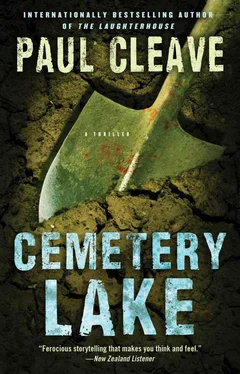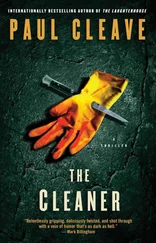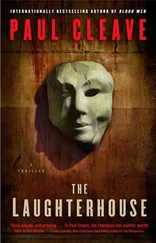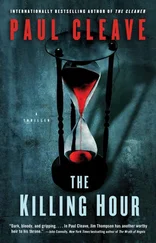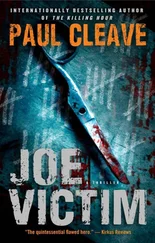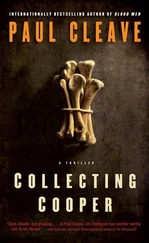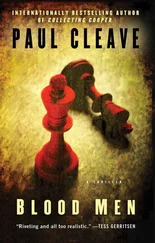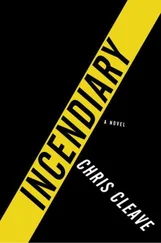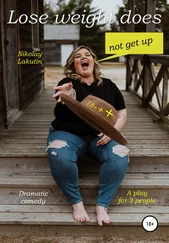Paul Cleave - Cemetery Lake
Здесь есть возможность читать онлайн «Paul Cleave - Cemetery Lake» весь текст электронной книги совершенно бесплатно (целиком полную версию без сокращений). В некоторых случаях можно слушать аудио, скачать через торрент в формате fb2 и присутствует краткое содержание. Год выпуска: 2008, ISBN: 2008, Издательство: Atria Books, Жанр: Триллер, на английском языке. Описание произведения, (предисловие) а так же отзывы посетителей доступны на портале библиотеки ЛибКат.
- Название:Cemetery Lake
- Автор:
- Издательство:Atria Books
- Жанр:
- Год:2008
- ISBN:9781451677836
- Рейтинг книги:3 / 5. Голосов: 1
-
Избранное:Добавить в избранное
- Отзывы:
-
Ваша оценка:
- 60
- 1
- 2
- 3
- 4
- 5
Cemetery Lake: краткое содержание, описание и аннотация
Предлагаем к чтению аннотацию, описание, краткое содержание или предисловие (зависит от того, что написал сам автор книги «Cemetery Lake»). Если вы не нашли необходимую информацию о книге — напишите в комментариях, мы постараемся отыскать её.
Cemetery Lake — читать онлайн бесплатно полную книгу (весь текст) целиком
Ниже представлен текст книги, разбитый по страницам. Система сохранения места последней прочитанной страницы, позволяет с удобством читать онлайн бесплатно книгу «Cemetery Lake», без необходимости каждый раз заново искать на чём Вы остановились. Поставьте закладку, и сможете в любой момент перейти на страницу, на которой закончили чтение.
Интервал:
Закладка:
The first thing I can smell is alcohol. I move up the hallway. The carpet is worn and the floorboards beneath it groan. There are three bedrooms, one messy, one tidy, and one completely empty-not a single piece of furniture or poster on the wall. Of the two in use, the tidy one is tidy only in comparison to the messy one, and the way things are all slightly out of whack in there suggests the police have been rummaging around looking for something and one of the Aldermans has rummaged around putting things back. I figure whatever evidence Bruce had hidden under his bed is now sitting on a desk somewhere in the police station.
The kitchen is swamped with dirty dishes and empty beer cans. In the lounge there are bottles and cans on every available horizontal plane. Sidney Alderman had a hard night. The arms of the lounge suite have been ripped up at the front, suggesting the presence of a cat, but there is no food bowl around, so maybe it got sick of the living arrangements and moved out. I’m surprised, though, to see photo albums scattered across a coffee table-Alderman didn’t seem the type to get hung up on family moments. I pull on a pair of latex gloves before opening the cover on the top one. Color photographs of happier times are arranged neatly in the pages. A man, a woman, a child. The Alderman nuclear family. They all look happy. Smiles, relaxed, candid moments, posed photos for birthdays and Christmas. Sidney Alderman is a different man here, the type of man who back then was mostly likeable.
I keep going. I already have a feeling about what is coming up. The man and woman and child start to get older. They grow. They still look happy. I recognize the house in the background of some of these shots. Summer photos. Winter photos. Snapshots from school plays and school sports. I move from one album to another. The house is neat and tidy and looks welcoming. It looks well maintained. Fresh paint, clean windows, no broken roof tiles.
Fashions change. The eighties become the nineties. Some of the furniture is updated. The carpet in one photo is that awful orange and brown Axminster stuff from the late sixties and becomes that awful, flecked, pale green stuff from the early eighties. The TV is updated. A cat appears in some of the pictures, a black thing with a swath of white fur around its neck.
The parents get older, and the kid gets taller and starts taking on the features of the man I met and saw die yesterday. Sidney Alderman looks like a happy man. Looks happy in the holiday photographs. Beaches and boats and fishing lines. Ugly shirts and bad haircuts and boxy-looking cars with poor fuel consumption. The house stays the same. The smiles stay the same. On to the next photo album. More holiday snaps.
Then Alderman’s wife is no longer around. The smiles are forced and thin, and the gaps in time between photos start to extend. No more holidays. No more happy moments. Just forced moments. Like birthdays and Christmases that nobody wants to be at. The wife doesn’t come back, and the decaying state of the house in the photographs suggests she isn’t going to. The years pass with only a few moments caught on film, but nothing heartwarming-the participants are going through the motions, they’re drawing on the memories of how these events ought to be, drawing on them so they can remember how to smile. At the back of the photo album is a collection of newspaper clippings.
My cell phone rings and breaks my focus. It’s another number I don’t recognize. I answer it, but nobody speaks back. I don’t say anything either. There’s a slight hissing sound that every cell phone in the country must get, the kind of hissing that can never fool you into thinking you’re talking on a landline.
Then, after ten or twenty seconds, a voice comes on the line. “You took away my son.” The words are slow and solid, as if each is its own sentence, as if he’s struggling to say them and has to concentrate really hard. “You took away my son,” he repeats when I don’t answer him.
I look down at the albums and the empty booze bottles. Alderman found out last night that his son was dead. There’s no way in the world the police decided not to inform him immediately. No way they figured it was the sort of thing they could put off until they swung by this morning to take him to the morgue. It’s got to be why these photo albums are out. I remember doing the same thing, and even now I sometimes still do it. I wonder if over the last few hours he’s come to the conclusion that I’m to blame for everything-for his wife leaving him, for his house wearing down, for his son killing himself, and for his son burying others.
“I wanted to help him. I didn’t want him dead. But I didn’t kill him. He killed himself. That was his choice and I had nothing to do with it.”
“You killed him.”
“I didn’t kill him.”
“You killed him because you’re a killer,” he says. “It’s in your nature. You said last night you were going to find him. You said if I helped you, you’d go easier on him, but I didn’t help you so you went hard. You went as hard on him as you could.”
“He killed himself out of guilt,” I say. “You knew what he was doing.”
“He wasn’t doing anything.”
“How many are out there?” I ask.
He returns to saying what he says best. “You killed him.”
“How many others? Is it just the four?”
“The police are lying to protect you, just like they protected you two years ago, just like the reporter said.”
“You don’t even know what you’re talking about,” I tell him.
“I saw him this morning. He was laid out on a piece of steel. He was broken. He wasn’t my boy anymore. It wasn’t Bruce. It was some thing with its head all busted up. You jammed that gun into him and pulled the trigger.”
“You know I didn’t do that.”
“Don’t tell me what I know,” he yells. “You don’t have the right to tell me what I know! He was my boy! My boy! And you killed him.”
“He killed himself.”
“I’ve always thought about what you did,” he says, “and I always wished I had the courage to do the same thing.”
“What?”
“When Lucy died. It was the same thing, you know. But I did nothing. I let it eat me up all these years and I did nothing. But not this time.”
I unfold the newspaper clippings. They’re not big articles, because it wasn’t a big enough story to hit the front page. Just like with my family. They’re small stories jammed in the back pages with the opinions and reviews and the who-gives-a-damn sections of the paper. Alderman’s wife, Lucy, was killed by a learner driver who was still mixing up the difference between yielding and not yielding. There’s a quote: “She just came out of nowhere.” It’s similar to my own story, but not that similar. Though maybe enough that there could have been a bond between Alderman and me. His wife went shopping for groceries and lost her life because of an accident. It was a run-of-the-mill routine: you climb into your car and an hour later you’re cut out of it. No malice. No intent. Just bad luck combining for everybody involved. A left turn instead of a right, ten seconds earlier or ten seconds later: any of those, and she’d still be alive. Similar in some ways to my own story. Different in others. My wife and daughter weren’t driving. They were walking. It wasn’t a learner driver who hit them, but an experienced one. He was experienced in a lot of areas. Mostly proficient in drinking more than he was in driving. He had a criminal record a mile long. He was a repeat offender. He would be pulled over and fined. His car and his license would be taken off him and he would get them back. It became a routine. He just kept on going back out on the roads, and the world just kept on letting him. When the fines increased, it didn’t matter. He just kept on paying them, racking up his mortgage account with drunk-driving conviction payouts. There wasn’t anything the criminal system was prepared to do about it except take a collective breath each time to see if this would be the one when he killed somebody. Nobody cared. As long as he paid his fines, he was a source of income. He was revenue. He was good for the country.
Читать дальшеИнтервал:
Закладка:
Похожие книги на «Cemetery Lake»
Представляем Вашему вниманию похожие книги на «Cemetery Lake» списком для выбора. Мы отобрали схожую по названию и смыслу литературу в надежде предоставить читателям больше вариантов отыскать новые, интересные, ещё непрочитанные произведения.
Обсуждение, отзывы о книге «Cemetery Lake» и просто собственные мнения читателей. Оставьте ваши комментарии, напишите, что Вы думаете о произведении, его смысле или главных героях. Укажите что конкретно понравилось, а что нет, и почему Вы так считаете.
